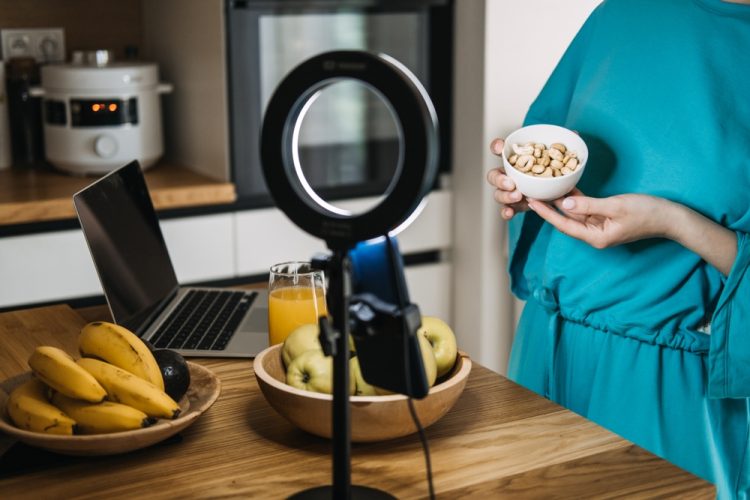Up to 24 million at risk from nutrition misinformation online
Posted: 22 May 2025 | Ben Cornwell | No comments yet
New report identifies influential social media accounts spreading nutrition misinformation online that may conflict with public health advice and affect millions globally.


Up to 24 million social media users worldwide could be exposed to potentially harmful nutrition misinformation online from a small group of influential personalities, according to new research by Rooted Research Collective (RRC) and the Freedom Food Alliance (FFA).
The report, Nutrition Misinformation in the Digital Age, analysed 53 ‘super-spreader’ influencers on platforms such as Instagram who regularly share nutrition guidance that often conflicts with established public health recommendations.
Many of these influencers advocate for diets that are high in meat, particularly red and organ meats, or promote extreme low-carbohydrate and ketogenic approaches. Some also recommend consuming raw or unpasteurised milk. The researchers state these messages stand in contrast to official dietary guidelines, which encourage dietary variety and moderation, including limited consumption of red meat and saturated fats.
Key findings from the report
The report found that the vast majority of these super-spreaders (87 percent) are not medical doctors, yet around one in five present themselves as credentialed experts without verifiable evidence. Nearly all (96 percent) have a financial interest linked to the advice they share, including supplement sales, coaching, health consultancy and events promoting these diets.
Alice Millbank, Co-Founder and Chief Scientific Officer at Rooted Research, said:
Nutrition is complex but it doesn’t have to be confusing. Superspreaders exploit that confusion by offering dangerously simple answers dressed up as hacks, often driven by profit, not science. We make the case for meeting misinformation on its own turf with clear, evidence-based communication so we can begin to rebuild trust in the healthcare system.”
The report identifies three main influencer types: “Docs,” who leverage or fabricate medical credentials and often promote conspiracy theories; “Rebels,” who challenge mainstream narratives; and “Hustlers,” who monetise their audience through marketing and sales.
Dr Faraz Harsini, DipACLM, expressed concern about the long-term health implications:
My worry is that the animal-based foods that these accounts promote can lead to chronic diseases, which means that if their followers are listening to these accounts, it could be a couple of years before they start having symptoms. These accounts are causing irreversible damage.”
Social media’s influence
The influence of social media on health choices is significant. A 2023 study by MyFitnessPal and the Irish Institute of Digital Business at Dublin City University found that 87 percent of millennials and Gen Z prefer TikTok for health and nutrition advice over traditional sources such as family, friends or medical professionals.
Financially, the largest influencers may earn more than $100,000 monthly through supplement sales, coaching services and ticketed events, supplementing other professional incomes. Meanwhile, the report reveals that the 46 super-spreaders with no medical qualifications, who have a combined following of approximately 20 million, are selling consultations or coaching from $100 per hour to tens of thousands of dollars per service.
Dr Matthew Nagra ND noted:
The results of this research are deeply concerning, particularly because the misinformation promoting animal-heavy diets is coming not only from influencers and laypeople, but from medical professionals as well. When those in positions of trust spread inaccurate information, it carries even more weight and the consequences are real.”
Although none of the influencers classified as “Docs” (medical and non-medical) are based in the UK – with all but one, who is Australia-based, coming from the United States – the report warns that nutrition misinformation is global and overseas influencers can still shape public understanding in the UK and beyond.
Therefore, the authors call for UK policymakers to amplify credible local healthcare voices to address these challenges.
Urgency of tackling misinformation
The urgency of tackling misinformation has been underlined by the World Economic Forum (WEF) in its 2025 Global Risk Report, which identified misinformation and disinformation as the leading risk over the next two years, ranking above extreme weather events and state-based armed conflict.
To counteract misinformation, the report recommends a three-part approach:
- Start education early: Put practical nutrition and digital literacy on the school curriculum, including how to cook healthy meals on a budget and spot false health claims online.
- Meet people where they are – online: Invest in training trusted, UK-based nutrition professionals to use social media effectively. Platforms like Instagram and TikTok can make public health advice more engaging and responsive.
- Raise the bar for healthcare professionals online: Provide misinformation training, enforce ethical guidelines and crack down on the misuse of medical titles for personal profit.
This multifaceted response aims to protect consumers from potentially harmful misinformation while fostering greater public trust in reliable health guidance.









